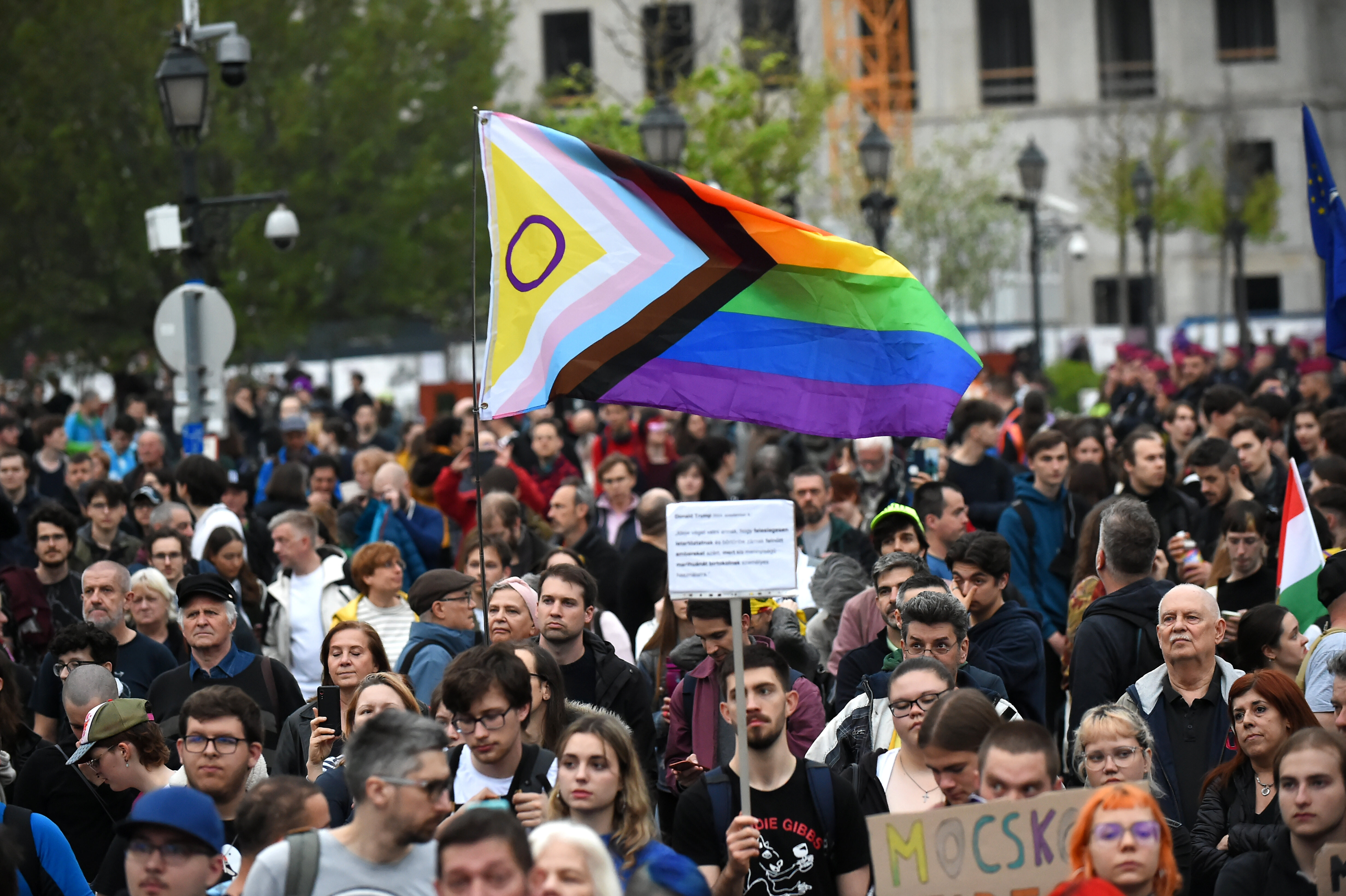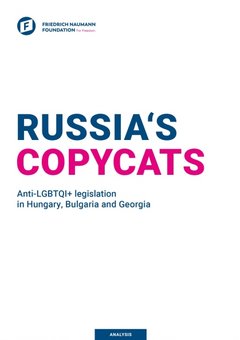LGBTQI+
Russia's Copycats: Anti-LGBTQI+ legislation in Hungary, Bulgaria and Georgia

Protesters gather in front of the Office of the Hungarian President in Budapest, Hungary, on April 15. The protests erupt after the parliament passes legislation restricting the right to assembly, banning Pride Marches.
© picture alliance / NurPhoto | Balint SzentgallayThe rapid proliferation of anti-LGBTQI+ laws and policies in Hungary, Bulgaria, and Georgia reveals a disturbing pattern in Europe and beyond: the deliberate erosion of legal protections for LGBTQI+ communities and the systematic weaponization of anti-minority propaganda. In each context, scapegoating the queer community has become a frequent strategic practice. Political actors employ anti-LGBTQI+ human rights policies not as isolated measures, but as persistent tools of societal polarization.
These actions predominantly serve to distract from governance failures and bolster electoral support by manipulating sensitive social issues. Consequently, LGBTQI+ issues are pushed forcefully into the national spotlight not due to genuine public concern, but because they serve as a potent political instrument.
Striking conceptual similarities are evident in the strategies and key propaganda narratives employed by political groups in the three focus countries. Research shows that these actors largely mirror the tactics long employed by the Kremlin, portraying LGBTQI+ individuals as threats to national identity and traditional values. The political actors championing these agendas in Hungary, Bulgaria and Georgia are often directly connected to the Kremlin. They openly embrace Russia-inspired laws and employ propaganda methods that have been refined by the Kremlin over the past decade.
Another alarming connection to Russia is the spread of “Foreign Agents Laws,” which are advancing in parallel with anti- LGBTQI+ legislations across Europe and Central Asia. While these laws primarily target independent civil society and media, they also naturally impact LGBTQI+, women’s, and other vulnerable groups’ associations and represent a significant threat to the remnants of local democracies. Russia is applying and sharing these tactics with its illiberal peers as a tool in the hybrid war it wages against Europe and the West. It has never been about mere ideology for the Kremlin, but rather it is part of a hybrid warfare strategy to divide European societies, undermine liberal democracies, and ultimately weaken the EU.
Illiberal actors across Hungary, Georgia, and Bulgaria are claiming exclusive ownership over sensitive cultural concepts such as – family, tradition, Christianity, and morality. By framing LGBTQI+ communities and their defenders as enemies of these values, these actors not only legitimize social exclusion and discrimination but also weaponized these narratives to discredit political opponents. Local religious institutions also play an important role in aligning with anti-democratic forces, reinforcing their influence and authority within society.
Although the anti-LGBTQI+ laws have not yet been fully implemented, their chilling effect is already widespread. In all three countries, LGBTQI+ individuals face increased selfcensorship, higher vulnerability to violence, and a profound sense of insecurity – factors that have led many to emigrate in search of safety and dignity elsewhere. More alarmingly, none of the regressive legislations show signs of being the last. Political forces in all three countries continue to propose new initiatives, prolonging the utility and political currency of an anti-LGBTQI+ stance.
The cumulative impact of these developments is deeply alarming. What is unfolding in Europe is not only the growing exclusion of queer people from public and social life but also a broader attack on democratic institutions and the international order. Illiberal forces are instrumentalizing LGBTQI+ human rights not merely to target vulnerable communities, but as part of a strategy to dismantle justice, the rule of law, and democratic governance, while consolidating power in the process.

Launch of the publication “Russia's Copycats: Anti-LGBTQI+ legislation in Hungary, Bulgaria and Georgia” with Helmut Metzner, Managing Director of the Magnus Hirschfeld Federal Foundation, Dr. Michaela Lissowsky, Head of the Human Rights Hub in Geneva and Anne Brasseur, Board Member of the FNF.
© FNF
